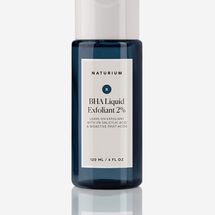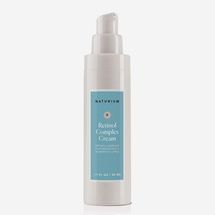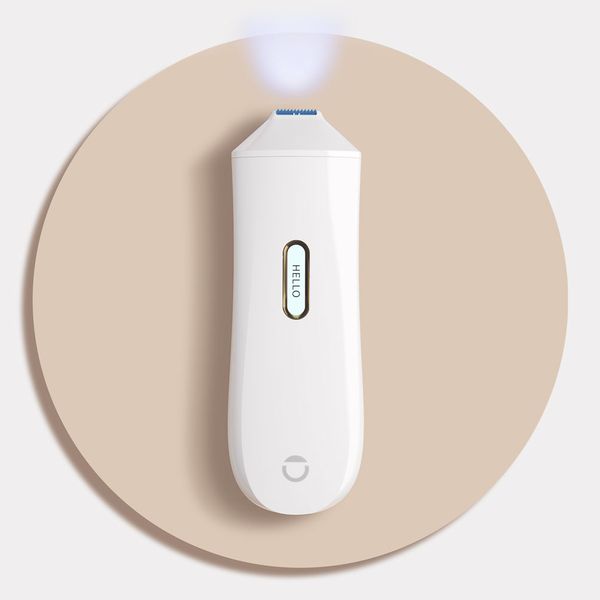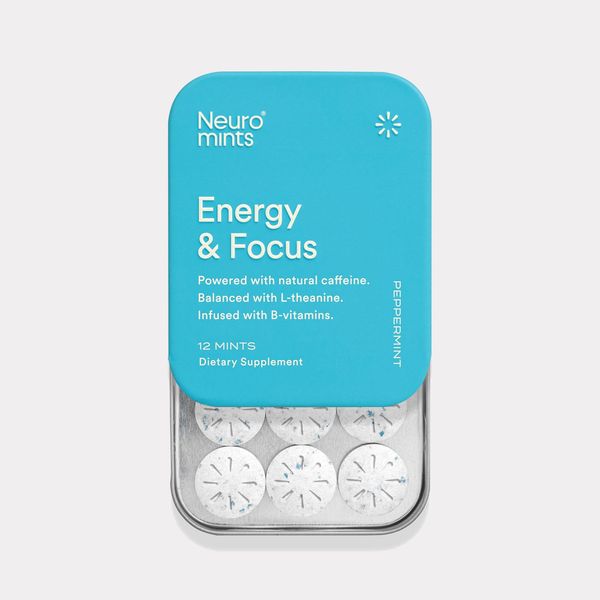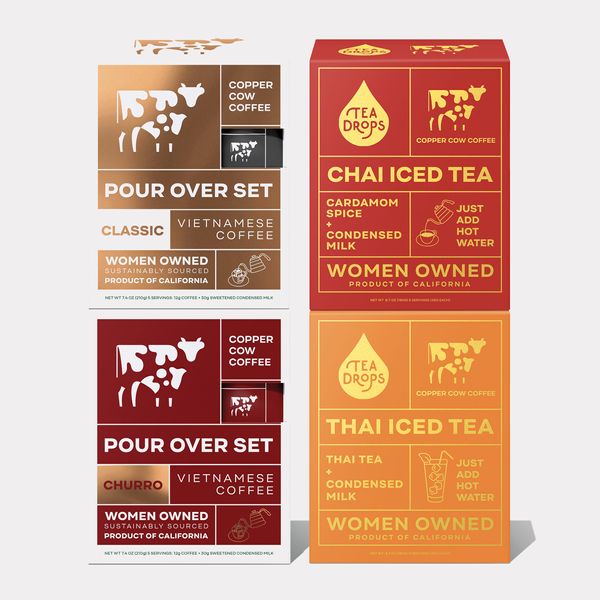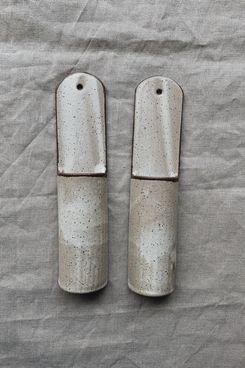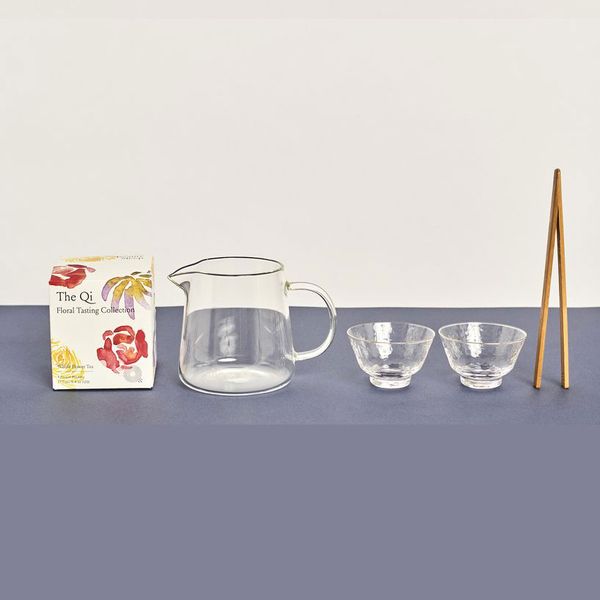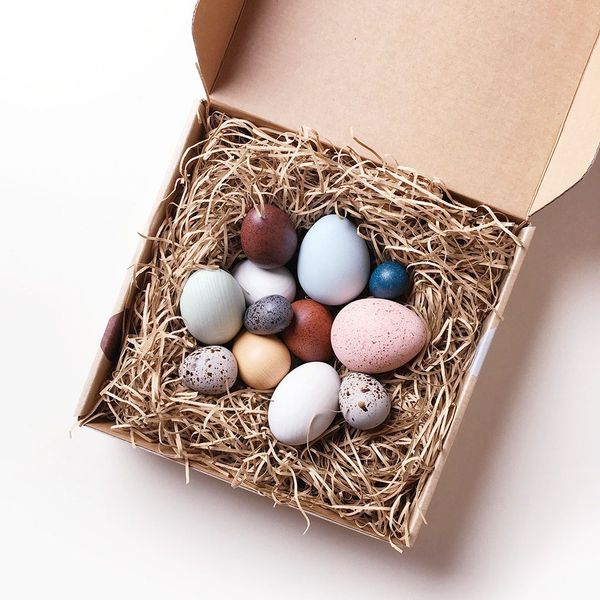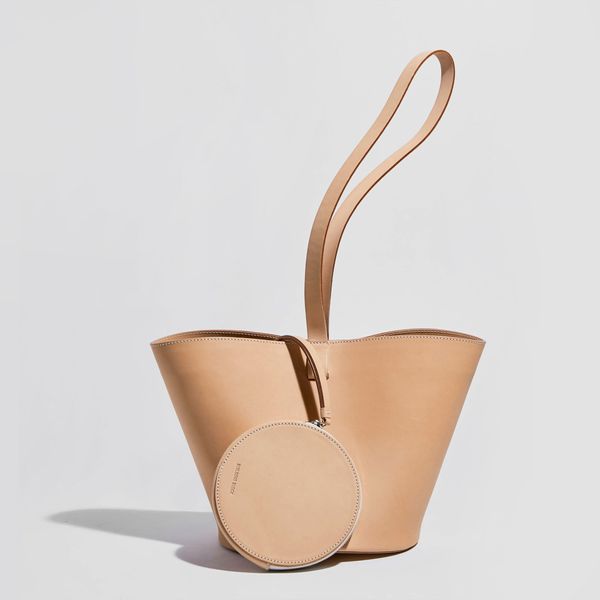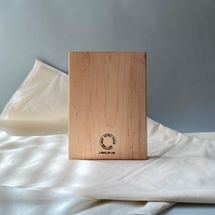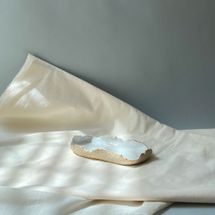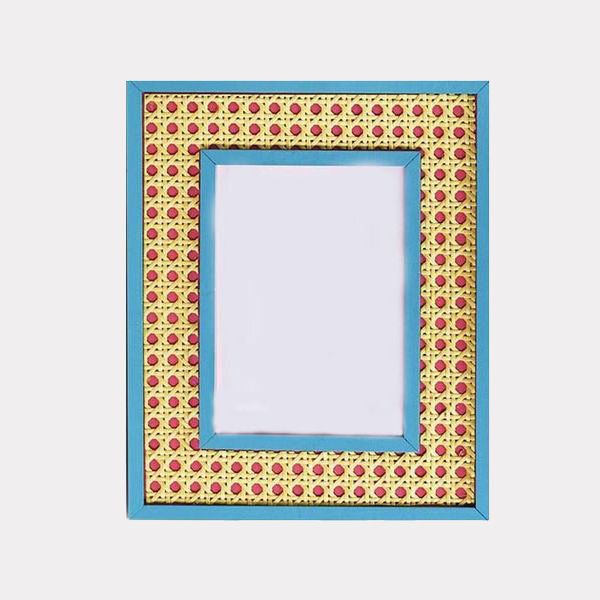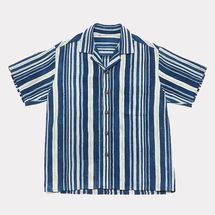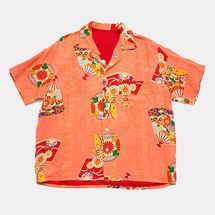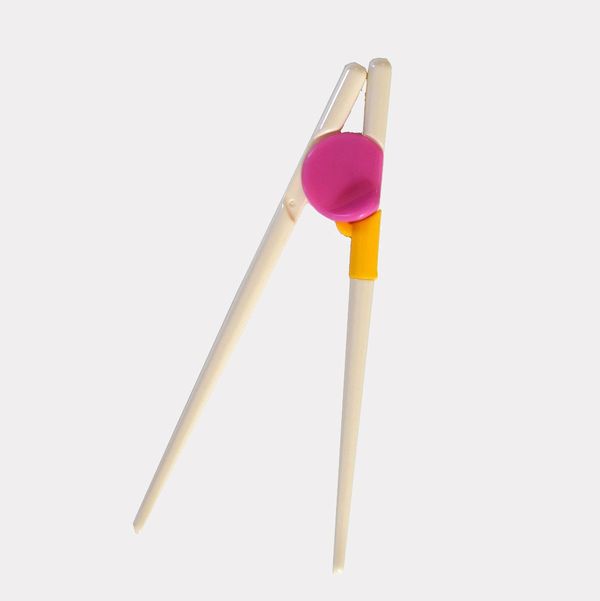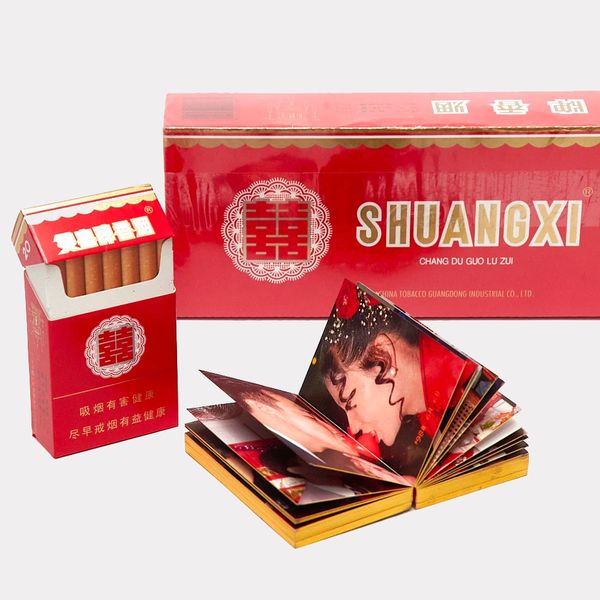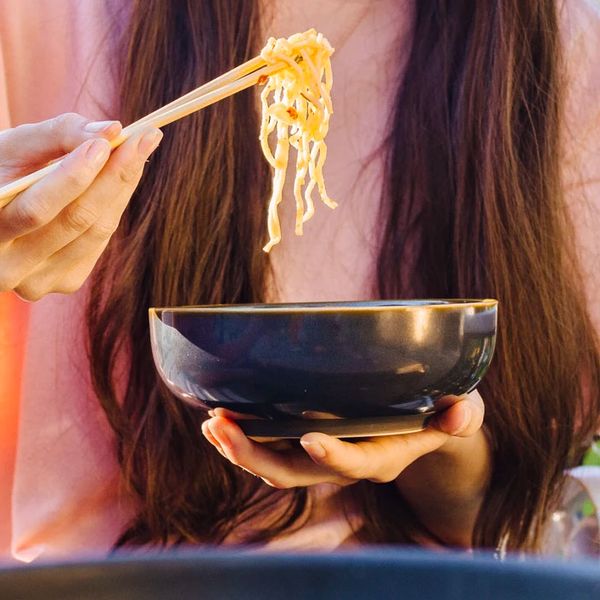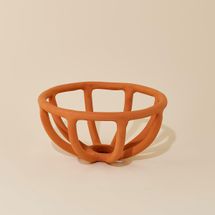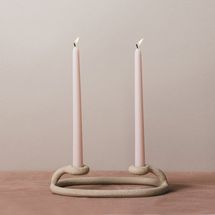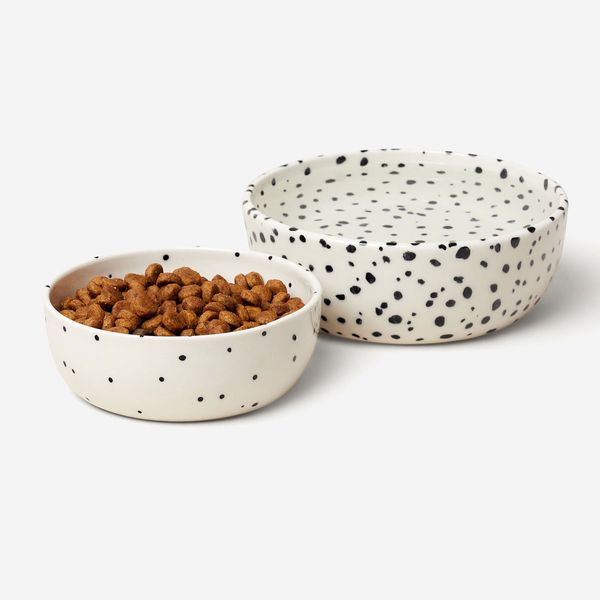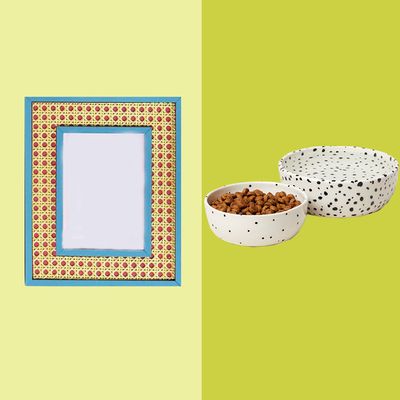
Gift-giving in Asian culture is not just reserved for the big moments. I remember my parents buying crates of Asian pears and stocking up on hand creams when they went on sale so they always had trinkets around when they were invited somewhere for dinner or to visit friends. Often (but not always) small, these gifts are given with the knowledge that one will come back to you. Outward expressions of emotion are difficult in a lot of Asian cultures, so gift-giving says a lot when words can’t: It communicates feelings of appreciation, respect, and gratitude among neighbors, co-workers, friends, and family.
While separated from the people I love this past year, I’ve taken great comfort in sending care packages to loved ones. Perhaps you’ve heard me and my Add to Cart co-host Kulap Vilaysack talk about how we see buying gifts as acts of kindness — and therefore guilt-free shopping — on our podcast. I’ve written before about how hard the Asian American community, an already vulnerable population, has been hit by both financial loss and continuing acts of violence over the last year. That’s why I always include things from Asian American brands and makers among the books, chocolates, and drawings by my daughter that otherwise make up my care packages. Below are 22 of those things, from affordable skin care to handmade toys for kids (or kids at heart) to ceramic pieces I love to give teachers, hostesses, and even pets.
Ettitude makes all of its bedding from bamboo, a more sustainable material than cotton. It’s not the only brand that makes bamboo sheets. But its L.A.-based founder Phoebe Yu, who was born and raised in Shanghai, attempts to do so more sustainably and transparently (the company releases so-called Impact Reports that document these efforts in detail). I appreciate this focus, but it’s the quality and feel of the linens that I think make them stand out. While you can always gift a set of those, Ettitude’s sleep bundle would let whomever you’re shopping for try a few things because it includes two pillowcases, an easy cami, and an eye mask, all of which are made from a sateen bamboo fabric that feels like the most luxurious silk. As a mom, I can’t imagine being anything other than delighted if I were to unwrap it.
Naturium, which was co-founded by Korean American beauty reporter and influencer Susan Yara, is hands down the best skin-care line I’ve tried this past year, especially in this price range. These two star products — a mild but effective exfoliant and a retinol cream — would make great gifts for any beauty obsessive, in part because each delivers instant results (something folks who love to try everything often want). But they’re just as good for newbies looking to build a routine, which is why, of everything in the line, I also give these to anyone who is even slightly curious about skin care.
My friend Chriselle Lim introduced me to this (admittedly very expensive) gadget during an episode of Add to Cart, when she told Kulap and me about how it not only helped her skin but also simplified her makeup routine. It’s hard to describe how it works without seeing it for yourself, but the device basically does two things. Using a built-in camera, it scans and detects any hyperpigmentation on the skin, then emits blue light to treat uneven areas. As it scans, the device also precisely applies an included serum (you can get in one of three shades) to areas that need attention, camouflaging problem spots without the need for a full face of foundation. The result is skin that looks like your skin, but with the most flattering Instagram filter. The tool was created by Filipino American Derrick Dinglasan, who founded Opte after studying medicine and then computer engineering. It would make a most luxurious gift to yourself — or a very special someone who wants for little else.
I started using these mints after my second child was born and I had trouble finishing sentences and emails. Neuro founders Kent Yoshimura and Ryan Chen met in college; Yoshimura practices Muay Thai, while Chen trained with the U.S. Paralympic Team, and they combined their passion for fitness with their degrees in neuroscience and chemistry to develop the line of mints and gums. The brand says that two of the mints equal about a cup of coffee in terms of energy, something I’ve found to be true. While they do have caffeine, the mints combine it with other ingredients like vitamins B6 and B12 that you won’t find in many (any?) beans, so I don’t get jittery like I can after having coffee. Now I buy them by the case (you can get a 12-pack in addition to this six-pack) so I can give the mints to my dad or new parents or anyone else who might be looking for things other than coffee or tea to help them focus and feel more energized. In addition to peppermint, they also come in a cinnamon flavor — and those who like them as much as I do can subscribe for regular deliveries and save a bit on each order.
There are, of course, those folks who’d rather get their energy and focus from coffee or tea. In my life, they’re often my kids’ teachers, all of whom over this past year received one of these bundles from Copper Cow Coffee, a company founded by Vietnamese American Debbie Wei Mullin. The set has all the ingredients you need to make pour-over Vietnamese coffee, Thai iced tea, and chai tea, including what I consider the most important element: single-serve packets of sweetened condensed milk. (To make the gift even sweeter, I suggest pairing it with a fun mug.)
These ceramic wall vases from San Francisco–based artist Sam Lee are a beautiful addition to any space, whether home, classroom, or office. Even someone with tons of traditional vases will appreciate how the unique vessels are décor in themselves — and even more so when you fill them with a fresh (or dried, or faux) flower or something more imaginative.
Speaking of flowers, this set of (caffeine-free) floral teas from The Qi would be a fun twist on the concept for anyone you might typically give an arrangement to. Watching the dried buds unfold into giant flowers as they steep in hot water can be so meditative, not to mention beautiful. The Special Connection set includes a sampling of the brand’s herbal flower teas, including lotus, chrysanthemum, and rose, all of which Chinese American founder (and Strategist contributor) Lisa Li sources from remote villages in Asia where residents have been brewing them like this for some time. Making it more giftable are an included glass pot you use to brew the teas and two delicate, gold-rimmed glass cups to drink them from.
I’ve given wooden toys from Merci Milo to my adult friend Carol Lim, who was delighted beyond measure to receive them. But the different sizes and colors and pleasing-to-the-touch wood bodies of the eggs in this nest make them just as good a gift for kids. These eggs’ shape, texture, and colors will stimulate the senses of the youngest chilren (who are old enough to hold them), while toddlers can use them for more imaginative play and older kids can appreciate them as a way to learn more about the actual birds whose eggs inspired their design. Merci Milo is a favorite place to find toys and other precious things every other child doesn’t have. Its Asian American founder Caroline Rodrigues follows in the footsteps of her immigrant grandfather, who owned a small children’s store in Los Angeles for more than 15 years.
[Editor’s note: This boxed wooden egg set is sold out, but the similar boxed wooden mushroom set is in stock for $47, along with hundreds of other wooden toys of all types.]
Everyone has a special someone in their life who appreciates gifts of quality. Mine is my mother-in-law, a collector of vintage furniture and art and someone I don’t mind spending a bit more on to impress. I’ve carried a bucket bag from Building Block for years and it has never gone out of style. Sisters Kimberly and Nancy Wu founded the accessories brand after years of working in product design for Honda and Nike. Each of their bags, wallets, and other leather goods are handmade in Taiwan at a family-run workshop. Like my bucket bag, this (vegan-dyed) basket bag is designed to be timeless: It’s neither too big nor too small and comes with a removable coin pouch, making it more like two gifts in one.
Fashion designer Phillip Lim is also a great cook. Over the past year, I turned to his cookbook, More Than Our Bellies, and cooking videos to get me through the most uninspiring days in my kitchen. And I often turn to his online shop of the same name when I’m struggling to find unique gifts for the many amateur chefs in my life. Most of the stuff is crafted by hand in small batches, which means it can sell out fast. But he’s regularly adding new things, like this small maple chopping board handmade by Brooklyn artisans who have lost their jobs due to the pandemic. For something more decorative, consider this delicate, hand-sculpted tray that almost looks like a broken eggshell. Throughout May, Lim is donating a percentage of all items sold to Give India, an organization providing relief on the ground to people ravaged by COVID-19 in that country.
Next to sourdough loaves, it seems a lot of people have been busy making babies during the pandemic. To new parents (or any parents), I love to give these colorful yet sophisticated cane frames from Society Social, a brand known for furniture and décor that nods to its founder Roxy Te’s North Carolina and Filipino roots. Everyone oohs and aahs over them (no matter if pictures of kids make it inside).
Whether it’s a dad or brother or uncle or grandpa or friend, chances are there is a guy (or woman or person) in your life who has a wardrobe of easy button-up shirts and polos. You can find things like that, vintage or otherwise, for a lot cheaper. But Sari-Sari General Store’s, if properly cared for, are the type you’d keep and pass down to the next generation — if they don’t permanently “borrow” them first. The retailer is an offshoot of Sari-Sari Studio, a collective of creatives founded by Filipino American women Gabriella Mozo and Marielle Sales. The (slightly) more affordable indigo-dyed striped shirt is made from 40-year-old cotton from Mali; the festive, floral-print one, from vintage kimono fabric. Each is one-of-a-kind and sized as a medium/large, according to the retailer. But if you want to shop around, Sari-Sari General Store is full of special products from Asian American, Black, brown, and other makers of color.
Asian or not, every kid should be taught how useful chopsticks are at a table. The skill of deftly moving food from one plate to another will serve them well into adulthood. I’ve given each of my kids these starter sets from Umami Mart, which make learning how to handle the tricky utensils a lot more fun. If you come for the chopsticks, I suggest browsing the site’s conbini section (conbini means convenience store in Japanese), a treasure trove of drinks, sauces, instant noodles, and incredibly handy kitchen accessories. Founders Kayoko Akabori and Yoko Kumano created a website that’s like a shoppable love letter to Asian food and culture; everything on it feels curated with an eye toward even the most discerning fans of Asian cuisine.
[Editor’s note: This exact pair of training chopsticks is sold out, but Kotobuki’s Kitty- and Elephant-themed kids’ chopsticks are in stock for the same price.]
Chop Suey Club is a store in the Lower East Side that curates really cool stuff from mostly young Chinese artists and designers. It’s my first stop for hard-to-shop-for people like close guy friends or my younger brother, whom I’ve been eyeing this book for ahead of his birthday. Until Death Do Us Part chronicles the use of cigarettes in Chinese weddings during the ’80s and ’90s through a collection of photos that its author Thomas Sauvin salvaged from a recycling plant near Beijing. (Sauvin, who is French, made the book with Jiazazhi, an independent Chinese publisher.) Custom was for the bride to light a cigarette for all the men invited to the wedding and then the bride and groom would play smoking games as part of the celebration. Each paperback book is packaged in a red Chinese cigarette box that’s as neat to look at as the photos inside.
Everybody has a snacker (or two or three) in their life. I love surprising mine with tasty treats from Tuk Tuk Box, which delivers all sorts of snacks that its Southeast Asian founders Christy Innouvong and Beatriz Aurelio-Saguin grew up eating to doorsteps nationwide. My favorite is the Just the Noods Box, an homage to all kinds of Southeast Asian instant noodles that comes with two sets of chopsticks and eight to ten varieties of noodles in varying degrees of funk, from mild to strong and spicy. But that’s just one of its many specialty boxes, some of which can be ordered via subscription so your hungriest loved ones will always have a steady supply.
All the home goods made by Brooklyn-based Virginia Sin are both artistic and practical, two things she says her Chinese immigrant parents taught her never have to be mutually exclusive. This focus makes her pieces not only excellent gifts for hosts or hostesses, but also anyone you want to thank with something more tangible than kind words. Any tablescape would be improved by her speckled bowl, which is a more interesting way to display fresh (or fake) fruit. And whether or not it’s holding candles, her double candlestick doubles as décor because it looks like sculpture. Both pieces are made-to-order and come in other colors if you don’t like the ones shown.
These equally artistic and practical ceramic bowls are my go-to gifts for pet parents. (Who says humans are the only species to spoil with nicer things to eat or drink from?) They come in two sizes (each is sold separately) and are also made in Brooklyn by the female artisans behind Franca, a ceramics studio co-founded by two Pratt students — one of whom, Sierra Yip-Bannicq, grew up in Beijing. While made for pets, I think the bowls are gorgeous enough to hold snacks for two-legged humans as well.
This last gift is the most specific, but perhaps the most thoughtful for anyone who would appreciate it. I discovered Han Books years ago while racking my brains to get something for my dad. He wasn’t around much growing up because he worked six days a week. My earliest memories of my dad are of him reading the few books in Korean he brought with him when he moved to the U.S. Of all the things he had to leave behind when he came here, access to books he could understand has always been one of his most profound losses. That’s why I was so excited to find Han Books, which sells Korean translations of lots of titles. Every year, I give my dad some the best books I’ve read; Klara and the Sun is one I know he’ll be getting this year. While we may not always understand each other (because my Korean is so terrible), it means so much knowing that my dad and I will always be able to communicate through these books.
The Strategist is designed to surface the most useful, expert recommendations for things to buy across the vast e-commerce landscape. Some of our latest conquests include the best acne treatments, rolling luggage, pillows for side sleepers, natural anxiety remedies, and bath towels. We update links when possible, but note that deals can expire and all prices are subject to change.

